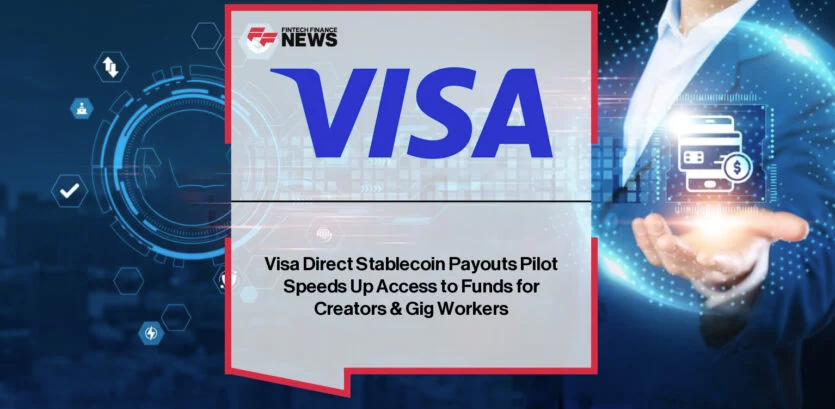Visa just unveiled a game-changing pilot that lets businesses send payments straight to stablecoins like USDC. This move promises near-instant cash for freelancers and creators worldwide. Imagine getting paid in minutes, no matter where you live. But how will this shake up the gig economy? Details ahead reveal the big shifts coming.
How the New Visa Stablecoin Pilot Works
Visa Direct now handles payouts where U.S. businesses send money in regular dollars. Recipients pick if they want it in USDC, a stablecoin tied to the U.S. dollar. This setup skips slow bank transfers and cuts costs for cross-border work.
The pilot targets gig workers, digital creators, and small businesses hit by currency swings or poor banking access. Recipients get funds in their digital wallets almost right away, turning days of waiting into seconds. Chris Newkirk, Visa’s president of commercial and money movement solutions, called it a way to make money accessible to everyone quickly.
Users need a wallet that checks identity rules and supports USDC. Visa starts with a few unnamed partners to test it out.

Roots in Visa’s Stablecoin Journey
Visa built this pilot on years of blockchain experiments. Back in September 2025, they tested pre-funding payouts with stablecoins for businesses. Now, it reaches everyday users directly.
Since 2020, Visa processed more than $140 billion in crypto and stablecoin deals. CEO Ryan McInerney shared that spending on cards linked to stablecoins jumped four times over the past year. That hits an annual volume of over $2.5 billion.
These efforts tie into the U.S. GENIUS Act, passed recently. It sets the first clear rules for stablecoins in the country. Visa sped up its plans after that law came through.
Key Partnerships and Tech Behind It
Visa teams up with groups to make stablecoins real for payments. They work with Bridge, a Stripe unit, on cards issued by developers using stablecoins. In Africa, Yellow Card helps with treasury and liquidity tests.
The Visa Tokenized Asset Platform lets banks try making and destroying stablecoins safely. This tool keeps things controlled while pushing innovation.
For now, Visa focuses on practical uses like sending money home or business-to-business transfers. They have not said no to their own stablecoin, but real-world tests come first.
Here’s a quick look at the pilot’s main features in a table:
| Feature | Description |
|---|---|
| Payout Method | Businesses send fiat; recipients opt for USDC |
| Speed | Near-instant access to funds |
| Requirements | KYC-compliant USDC wallet |
| Target Users | Freelancers, creators, gig workers in unstable regions |
| Rollout Timeline | Select partners now; wider in second half of 2026 |
Impact on Global Workers and Economy
This pilot could change lives for millions in the gig economy. Freelancers in places with shaky currencies often lose money on fees or delays. Stablecoin payouts offer a stable, fast fix that keeps earnings whole and timely.
Think about a creator in Latin America waiting weeks for platform pay. Now, they choose USDC and cash out locally right away. It builds trust in digital money while linking old finance with new tech.
Experts see it blending DeFi speed with traditional reliability. As rules clear up, more countries might join, easing borderless work.
One short note: Early tests show high demand from platforms paying creators.
What Lies Ahead for Stablecoin Adoption
Visa eyes a bigger rollout by mid-2026 as rules settle and users grow. They plan to add more stablecoins and partners over time.
This fits a surge in stablecoin use. Global volumes hit records this year, driven by remittances and trade. Visa’s move could pull in banks and apps, making crypto everyday.
Challenges remain, like wallet access in remote areas. But the pilot sparks hope for fairer global pay.
In wrapping up, Visa’s USDC payout pilot stands as a bold push toward instant, borderless money that empowers workers everywhere. It mixes tech trust with real speed, promising a fairer world for earners facing old hurdles. What do you think, does this change how you handle payments? Share your views and pass this story to friends on social media, it could spark great talks.



















